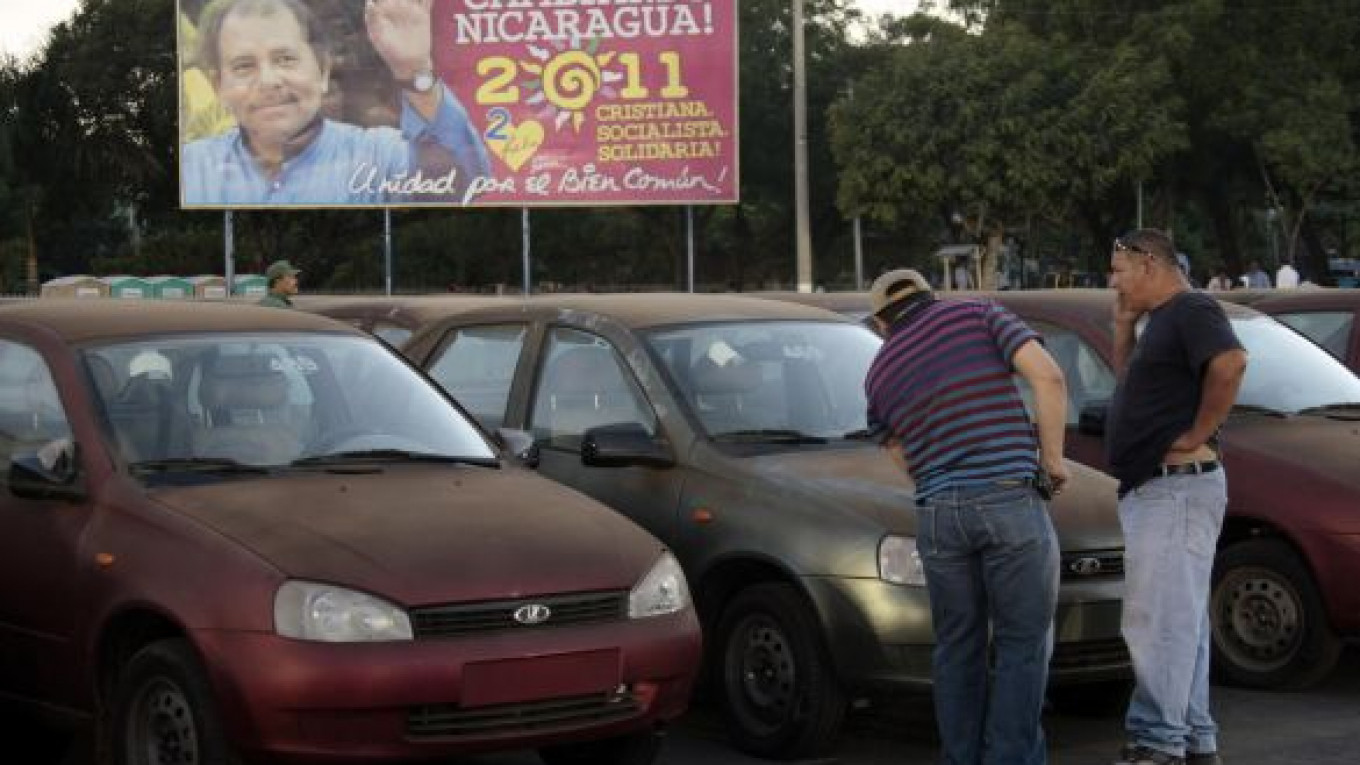The GM-AvtoVAZ joint venture is restarting production of Chevrolet Niva vehicles Tuesday, company spokeswoman Lyudmila Kharcheva said.
The company's assembly line will operate five days a week in two eight-hour shifts beginning on that date.
The plant did not produce Chevrolet Nivas on February 10, 11 or 14 because of a components shortage. The company did not specify the type of components that were missing, saying only that it was a problem with a single supplier.
GM-AvtoVAZ intends to produce about 52,000 vehicles in 2011. The enterprise boosted production by 60 percent to 37,000 cars in 2010. The joint venture has been producing cars since September 2002.
Meanwhile, AvtoVAZ reported Monday that it exported 5,311 cars to countries in Europe in 2010, down from 7,280 in 2009 and about 7,000 in 2008.
Europe's share in company exports declined 8.3 percentage points last year, compared with about 21 percent in 2009 and 9 percent in 2008.
The Lada 4x4 accounts for most of the exports to Europe.
The leading export destinations for AvtoVAZ products are Ukraine, Azerbaijan, Kazakhstan, Belarus, Moldova, Uzbekistan, Armenia, Egypt, Uruguay and Venezuela.
The CIS is AvtoVAZ's second most important market after Russia.
In Russia, AvtoVAZ sells the most cars in the Volga, Central and Southern federal districts.
AvtoVAZ produced 545,540 cars in 2010, 85.1 percent more than in 2009. It also produced 77,626 kits, up 79.1 percent.
The company sold 558,700 cars last year, up 45.7 percent. Domestic sales were up almost 48 percent to 517,147, including 221,584 sold under the government's car scrappage program.
AvtoVAZ currently produces 15 models: the Priora (sedan, hatchback, universal and coupe models), Kalina (universal, sedan, hatchback, sport), Samara (three- and five-door hatchbacks and sedan), Lada 2105 and 2107, and three- and five-door Lada 4x4.
A Message from The Moscow Times:
Dear readers,
We are facing unprecedented challenges. Russia's Prosecutor General's Office has designated The Moscow Times as an "undesirable" organization, criminalizing our work and putting our staff at risk of prosecution. This follows our earlier unjust labeling as a "foreign agent."
These actions are direct attempts to silence independent journalism in Russia. The authorities claim our work "discredits the decisions of the Russian leadership." We see things differently: we strive to provide accurate, unbiased reporting on Russia.
We, the journalists of The Moscow Times, refuse to be silenced. But to continue our work, we need your help.
Your support, no matter how small, makes a world of difference. If you can, please support us monthly starting from just $2. It's quick to set up, and every contribution makes a significant impact.
By supporting The Moscow Times, you're defending open, independent journalism in the face of repression. Thank you for standing with us.
Remind me later.






